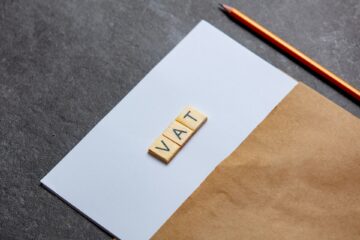Master Thai Corporate Taxation for SMEs: A Guide & Expert Assistance
For small and medium-sized enterprises (SMEs) operating in Thailand, corporate taxation can be a complex and challenging aspect of financial management. Navigating the Thai tax regulations requires a thorough understanding of local tax laws, a grasp of taxable income calculations, and the ability to take advantage of tax incentives and deductions where applicable. As tax laws change frequently, staying updated and informed is critical for ensuring tax compliance and avoiding expensive penalties.
In this comprehensive guide, we will detail the essentials of corporate taxation for Thai SMEs, providing an in-depth look at key aspects such as tax rates, filing deadlines, and documentation requirements. We will also discuss the various tax incentives and exemptions your SME may be eligible for and the strategies for minimizing your tax liabilities.
Additionally, we will highlight how partnering with Plizz, a trusted provider of professional tax services, can simplify the complexities of corporate taxation, ensuring compliance, efficiency, and peace of mind for your business.
Embark on a journey to master the intricacies of Thai corporate taxation and discover the indispensable support Plizz can offer to help your SME successfully navigate the labyrinth of tax regulations, ultimately achieving financial efficiency and business growth in Thailand’s dynamic market.
Understanding Thai Corporate Tax Rates and Regulations
The foundation of corporate taxation knowledge for SMEs in Thailand begins with familiarizing yourself with the tax rates and relevant regulations. A basic understanding of the following points can ensure a stronger footing when planning your SME’s financial management strategies:
- Corporate Income Tax (CIT): Thai resident companies and partnerships are subject to a standard CIT rate of 20% on their net profits derived from sources in and outside Thailand. Non-resident companies, on the other hand, are taxed only on income derived from sources within Thailand.
- Withholding Tax: Depending on the nature of the payment, companies are required to withhold tax at source when making certain payments to both resident and non-resident recipients, such as interest, dividends, and fees for services.
- Value Added Tax (VAT): VAT is generally levied at a standard rate of 7% and applies to the supply of goods and services in Thailand.
Deadlines and Documentation: Staying Compliant with Thai Tax Filing Requirements
In order to maintain tax compliance, Thai SMEs must adhere to specific deadlines and documentation requirements:
- Filing Deadlines: Companies must generally file their annual CIT return and remit the tax payment within 150 days following the end of their accounting period. Additionally, a half-year corporate tax return must be submitted and the tax paid within two months following the end of the first six months of the company’s accounting period.
- VAT and Withholding Tax Filing: VAT returns (Por Por 30) must typically be submitted, and the VAT remitted, on a monthly basis. Withholding tax returns must also be submitted to the Thai Revenue Department, usually within seven days of the end of the month in which the withholding is made.
Understanding and adhering to these deadlines and documentation requirements is essential for maintaining tax compliance and avoiding penalties.
Tax Incentives and Exemptions for Thai SMEs
To bolster the growth of SMEs, the Thai government offers various tax incentives and exemptions:
- Board of Investment (BOI) Incentives: Depending on the industry, location, and other qualifying conditions, companies may be eligible for BOI incentives, including exemptions or reductions on CIT, import duties, and other taxes.
- Tax Deductions for Research and Development (R&D): Qualified SMEs engaged in R&D activities may be eligible for an additional 100% tax deduction on qualifying R&D expenses.
- Regional Operating Headquarters (ROH) Incentives: Companies that establish ROHs in Thailand are eligible for various tax incentives, such as reduced CIT rates and exemptions on dividend income and interest payments.
Leveraging these incentives and exemptions can significantly reduce your SME’s tax liabilities, promoting financial efficiency and business growth.
Minimizing Tax Liabilities and Optimizing Tax Strategies
To mitigate tax liabilities and achieve financial efficiency for your Thai SME, consider implementing the following tax strategies:
- Detailed Recordkeeping: Ensure proper maintenance of financial records, including invoices, contracts, and expense receipts, as these will serve as substantiating documentation for claimed deductions and exemptions.
- Accurate Tax Contingent Planning: Forecast your company’s taxable income and deductions for the entire fiscal year, enabling you to plan for tax liabilities and minimize surprises.
- Identify Tax Saving Opportunities: Regularly review your SME’s tax situation to anticipate tax-saving opportunities, such as utilizing available deductions and exemptions or benefiting from tax incentives provided by the government.
Leveraging Plizz’s Expert Tax Services in Thailand
To streamline your tax compliance efforts and maximize the efficiency of your SME’s tax strategies, partnering with Plizz’s expert tax services can offer the following advantages:
- Professional Tax Advice: Plizz’s tax experts can help you navigate the complexities of Thai tax regulations and the implications for your business, especially if your SME is eligible for specific tax incentives or exemptions.
- Tax Filing and Compliance Support: Plizz can assist you with preparing and filing tax returns, ensuring timely submissions and adherence to deadlines and documentation requirements.
- Proactive Tax Planning: With Plizz’s support, your SME can develop strategies for minimizing tax liabilities and maximizing tax-saving opportunities throughout the fiscal year.
Achieve Tax Compliance and Efficiency for Your Thai SME with Plizz’s Expertise
Navigating the complexities of corporate taxation for SMEs in Thailand requires understanding tax regulations, maintaining compliance with deadlines and documentation, and leveraging available tax incentives and exemptions. By implementing tax strategies and partnering with an experienced tax services provider like Plizz, your Thai SME can achieve tax compliance, financial efficiency, and substantial growth in the market.
Looking for a reliable tax accountant in Bangkok to help optimize your Thai SME’s tax management? Look no further than Plizz! Our range of tax services are tailored specifically for SMEs in Thailand, and our team of tax professionals are here to help you every step of the way. Take the first step towards better tax management today – visit our website and book a consultation with our team. Let Plizz help you navigate the complex world of tax regulations and compliance, so you can focus on growing your business. Contact us now to learn more about our tax services and how we can help your business thrive!



0 Comments